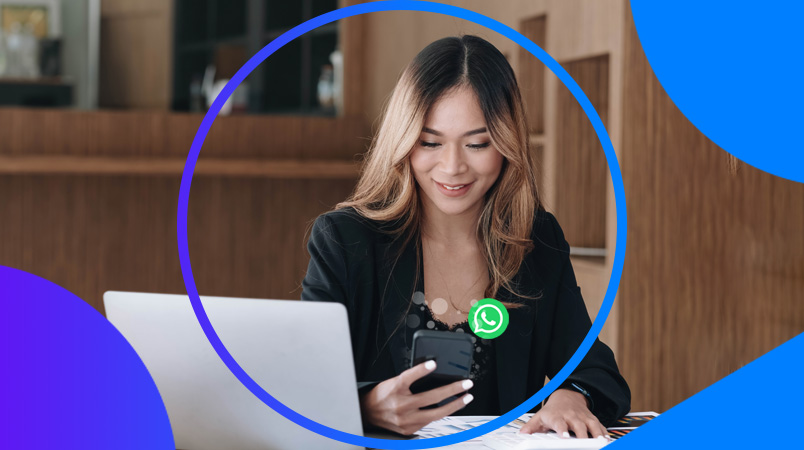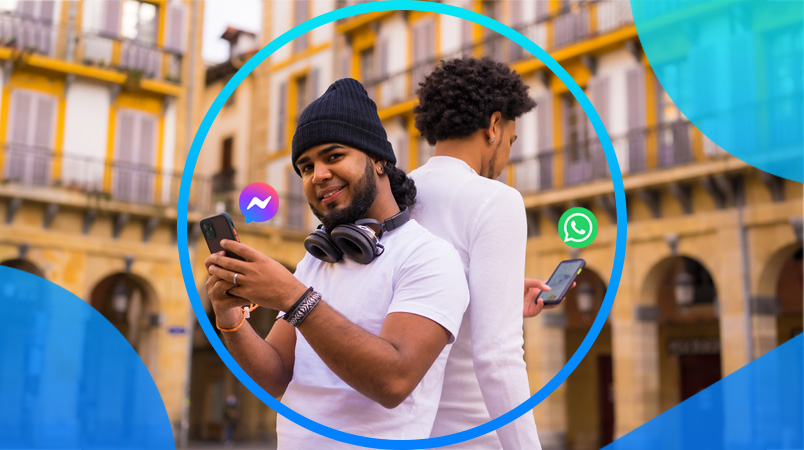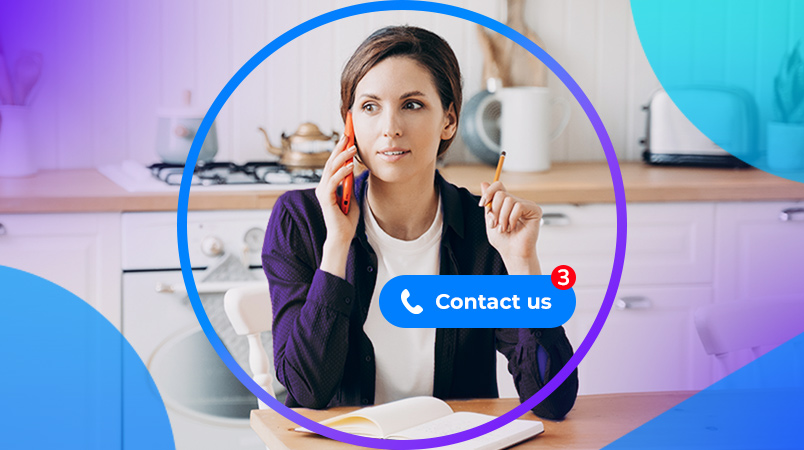WhatsApp is one of the most popular global messaging channels. With 2 billion active monthly users sending 100 million messages a day, it’s no surprise that businesses are more and more choosing to interact with their customers via WhatsApp.
WhatsApp Business has become a big part of business-to-customer (B2C) communication with its fast message exchange over the internet through connected smartphones, laptops, desktop computers, tablets, and even smartwatches. It allows businesses to create meaningful one-on-one conversations with great customer journeys that lead to successful conversion.
In Marketing, 67% of respondents report that WhatsApp led to higher conversion rates than alternative channels, and we want businesses to continue to focus on these high ROI marketing use cases. – Meta
In order to match its pricing to the use cases and experiences that WhatsApp Business Platform offers, Meta has announced that it will make changes to its pricing model starting the first of June, 2023. Want to know what that means for your business? Let's take a look!
WhatsApp Business Platform in a Nutshell
Before diving into pricing model changes, it's important to know how WhatsApp Business Platform operates.
Meta recognizes two types of conversations on WhatsApp Business Platform: user-initiated conversations and business-initiated conversations. Business-initiated conversations always start with message templates, which need to be pre-approved by Meta.
A messaging session can start with both a user-initiated message, or a business-initiated message. When a messaging session starts, your business gets a 24-hour conversation window or Customer Care Window. As a business, you can keep interacting with customers if they also keep interacting with you up to 24h after the last customer interaction. Within the session, you can personalise and/or automate the conversation with templates, customer care employees, and chatbots at your wish (within reason, of course).
Once the conversation window closes, you will be able to send business-initiated messages (again) to restart the conversation with customers who present an active opt-in.
This setup allows the creation of a rich conversational experience that your customers want. Offer them service, support, and good deals in a personalised environment to boost your business.
Pricing Model until June 2023
Until June 1st, 2023, the WhatsApp Business pricing model is conversation-based. This means a fee will be charged per conversation (24h window) rather than per (Templated) message sent.
Businesses are charged once per 24-hour conversation, without additional charges for any additional messages from the business or the customer. The fees differ depending on who initiated the conversation.
New Pricing Model from June 2023
From June 1st, 2023, WhatsApp is introducing a new pricing model. This pricing model will also be conversation-based, but it adds more depth to the different conversations throughout the customer journey.
Meta strives to deliver the ultimate customer journey on WhatsApp Business, allowing businesses to communicate with their customers on multiple touch points and for various use cases. Whereas WhatsApp Business used to focus on service, they now also offer marketing messages, notifications, and many more exciting features.
But what is going to change? And how will it benefit your business?
Conversation Categories
To align the pricing model to its vision, Meta is introducing four conversation categories:
Utility (business-initiated)
Authentication (business-initiated)
Marketing (business-initiated)
Service (user-initiated)
Because business-initiated conversations always start with message templates, the template used will determine the conversation type of the (24h) conversation window. It is possible to switch between categories, starting a new 24-hour conversation window after the switch. Please note, that this will also be charged as such.
For example, if you send out a message to boost sales on your new products, you will probably use a Marketing template, starting a Marketing conversation. The Marketing conversation fees apply here. Halfway through the conversation however, the need arises to use a Utility message template. This will start a 24-hour Utility conversation window, where the Utility conversation fee applies.
All existing message templates in WhatsApp Business Platform will be classified into the four new categories on April 1st. Let’s dive into the four new categories:
Utility
Utility conversations are business-initiated conversations, often relating to a transaction. Think about purchase information, confirmations but also post-purchase notifications, and recurring billing statements to customers who have opted-in.
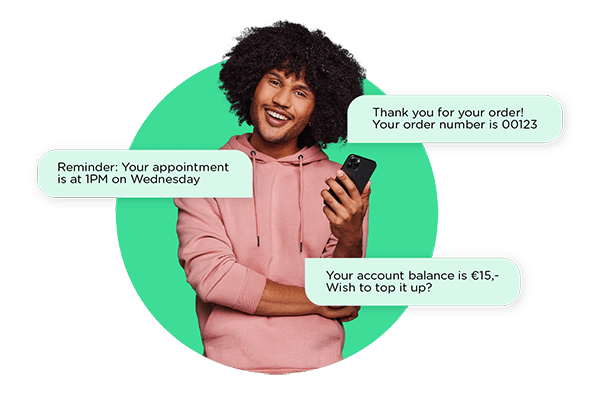 In most cases, the fee for Utility conversations will be lower compared to the current business-initiated conversation rates. This will help improve the customer service, and thus customer experience.
In most cases, the fee for Utility conversations will be lower compared to the current business-initiated conversation rates. This will help improve the customer service, and thus customer experience.
Authentication
In Authentication conversations, security is key. With authentication templates, you can authenticate users with One Time Passwords at multiple touch points during the login or verification process, such as account registration, account recovery, and other situations where the customer’s identity needs confirmation.
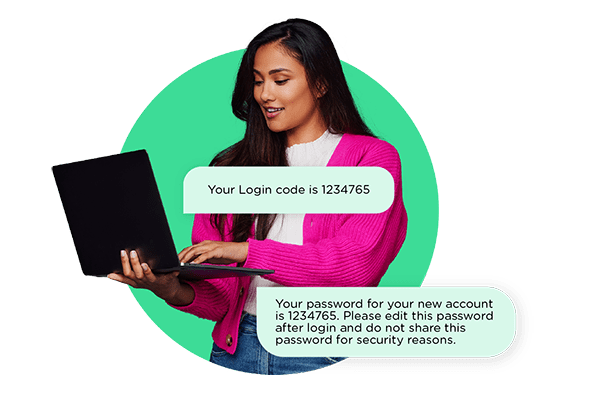 In most cases, the fees for Authentication conversations will be lower compared to the current business-initiated conversation rates. Instead, they will be charged similar to Service conversation rates (user-initiated).
In most cases, the fees for Authentication conversations will be lower compared to the current business-initiated conversation rates. Instead, they will be charged similar to Service conversation rates (user-initiated).
Marketing
As the name suggests, Marketing conversations are business-initiated conversations to market a product or service to customers. You can send your opted-in customers relevant offers, good deals, or information about product restocking.
Good-to-know: Any business-initiated conversation that does not qualify as an Authentication or Utility conversation, will fall under this category.
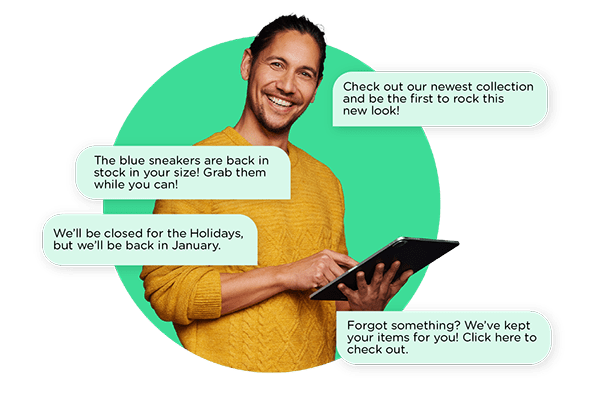 The rates for Marketing conversations will be higher compared to the current business-initiated conversations. This might sound scary, but WhatsApp Marketing has a higher ROI than any other messaging channel. Also, the new fees don't differ much compared to other Marketing messaging channels.
The rates for Marketing conversations will be higher compared to the current business-initiated conversations. This might sound scary, but WhatsApp Marketing has a higher ROI than any other messaging channel. Also, the new fees don't differ much compared to other Marketing messaging channels.
Service
Service conversations are all conversations that are user-initiated, often to resolve a customer inquiry.
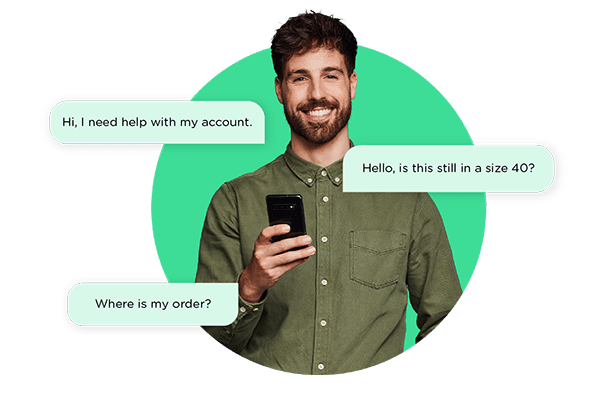 The fees for Service conversations will similar to the fees for the current user-initiated conversations.
The fees for Service conversations will similar to the fees for the current user-initiated conversations.
Benefits of the New WhatsApp Pricing Model
The new pricing model even comes with some nice benefits! Isn’t that nice.
72-Hours Free-of-Charge Service Entry Points
WhatsApp Business Platform is just one of many products Meta has to offer. To focus on expanding the use cases of its other products, Meta offers 72-hours free-of-charge when a user initiates a conversation via Facebook or Instagram. This can be through an advertisement on Facebook or Instagram, or a Facebook Page CTA button.
1000 Free Service Conversations Each Month
Yes, you read that correctly! WhatsApp will give you 1000 Service conversations free-of-charge, every month! This will give your business the opportunity to service your customers and get acquainted with the messaging platform. Have the space to build trust with your customers and get experience WhatsApp Business before you begin to pay for more elaborated use cases. Ready to expand? Then you will be charged according to the conversation type of your business-initiated messages.
Impact for You
So what impact does the new pricing model have on your business besides the above-mentioned benefits?
The Customer Support Heroes
Is your customer support set up to respond to incoming messages from your customers, helping them in their time of need? Then you will be charged for Service conversations, and your pricing will remain comparable to before. The first 1,000 conversations will be free each month. Continue to offer the support your customers need and create the optimal customer experience.
The Marketing Magic Managers
Are you in Marketing? Do you send your customers updates and news about your new products and services? The rates for your business-initiated Marketing conversations will, unfortunately, increase compared to before.
WhatsApp Marketing conversations have a higher ROI than any other channel though, and even though the rates go up, they don’t differ much or at all form other Marketing messaging channels. You can also invest in Facebook and/or Instagram ads to utilise the free Meta entry points for a 72-hour free-of-charge conversation window to boost your conversion rates even more.
The Notification Squad
Do you use WhatsApp mainly for its notification features? One Time Passwords, Codes, Purchase Confirmations, Order updates, Track&Trace URLs, you name it! Then your rates will slightly decrease compared to before.
A Little Bit of Everything
Are you using WhatsApp Business Platform at multiple touch points in your customer journey? Then first, congratulations! This is the exact use case that Meta envisioned and optimised their platform for. You’ll benefit greatly from all its features!
Your Marketing conversation rates will increase slightly, but you will, in return, save some money on Utility and Authentication conversations. You will also benefit from the 1,000 free Service conversations each month. What impact the new pricing model has on your business depends largely on the allocation of the conversations.
WhatsApp Business Pricing at CM.com
The new pricing model and the changes it brings apply to the fee invoiced by WhatsApp. CM.com will continue to invoice these fees on behalf of WhatsApp directly to you. CM.com pricing will still apply.
Want to know more about the price changes and the impact it has on your specific use case? Don’t hesitate to get in touch with us via the button below or contact your account manager.

